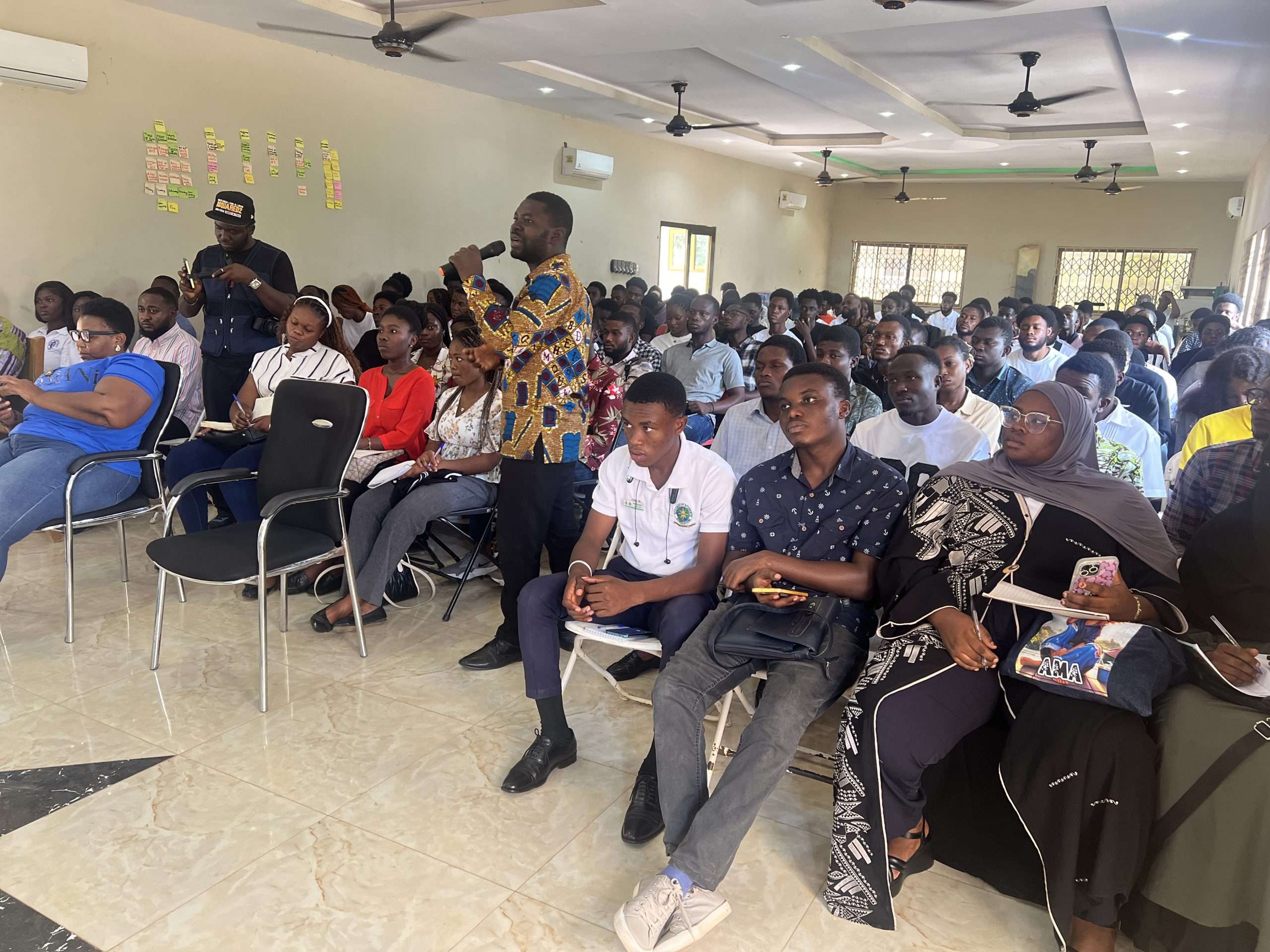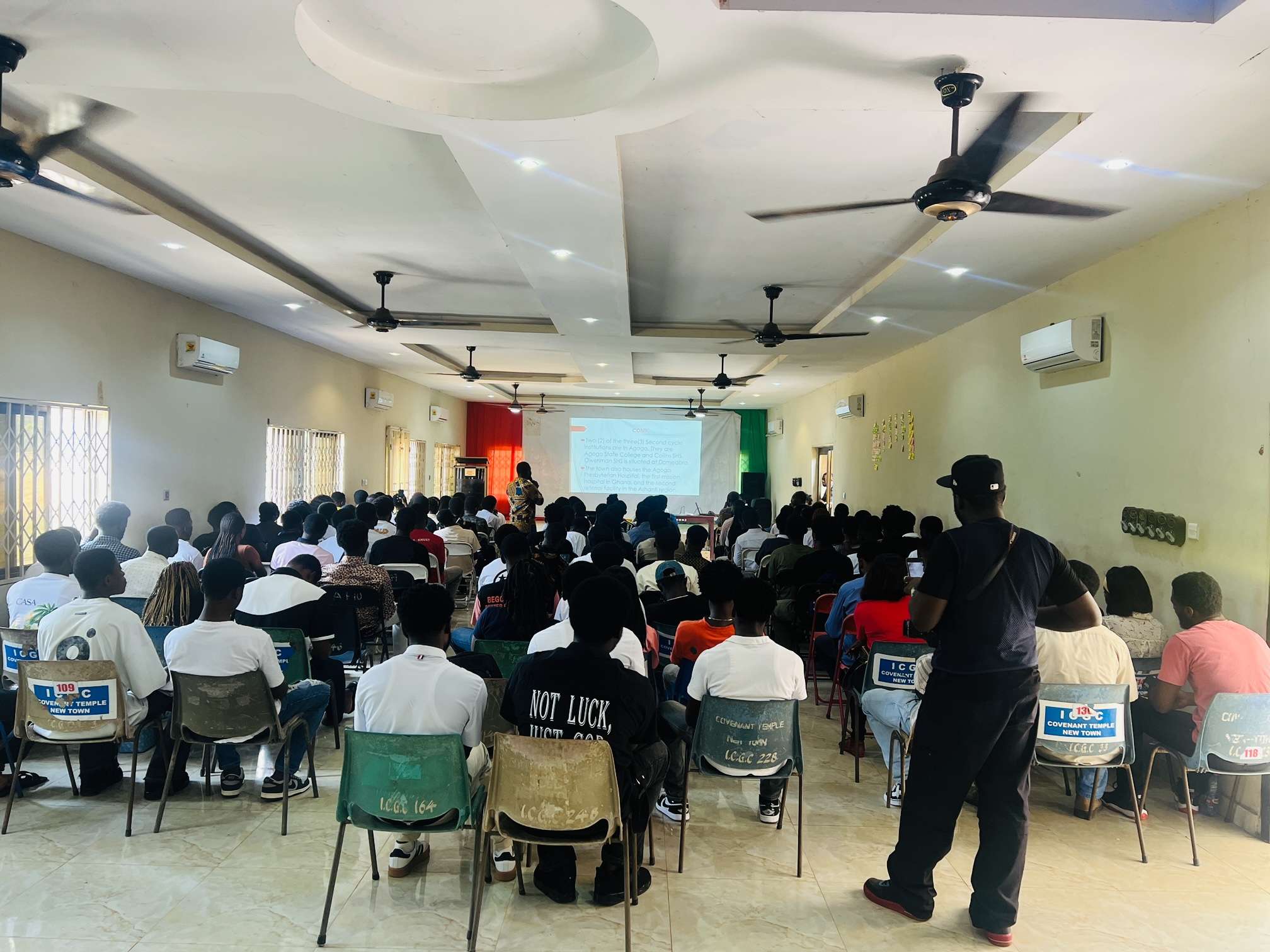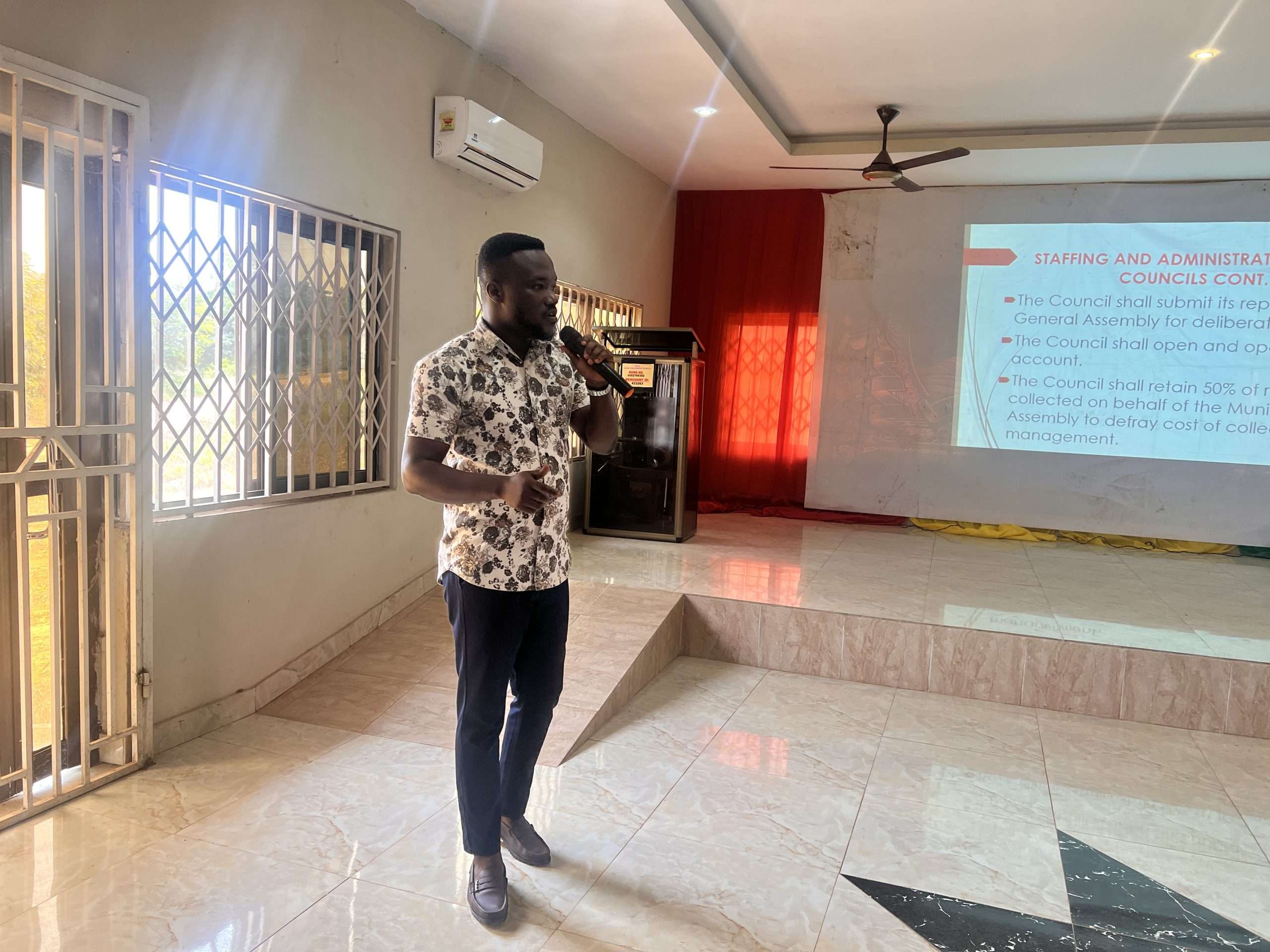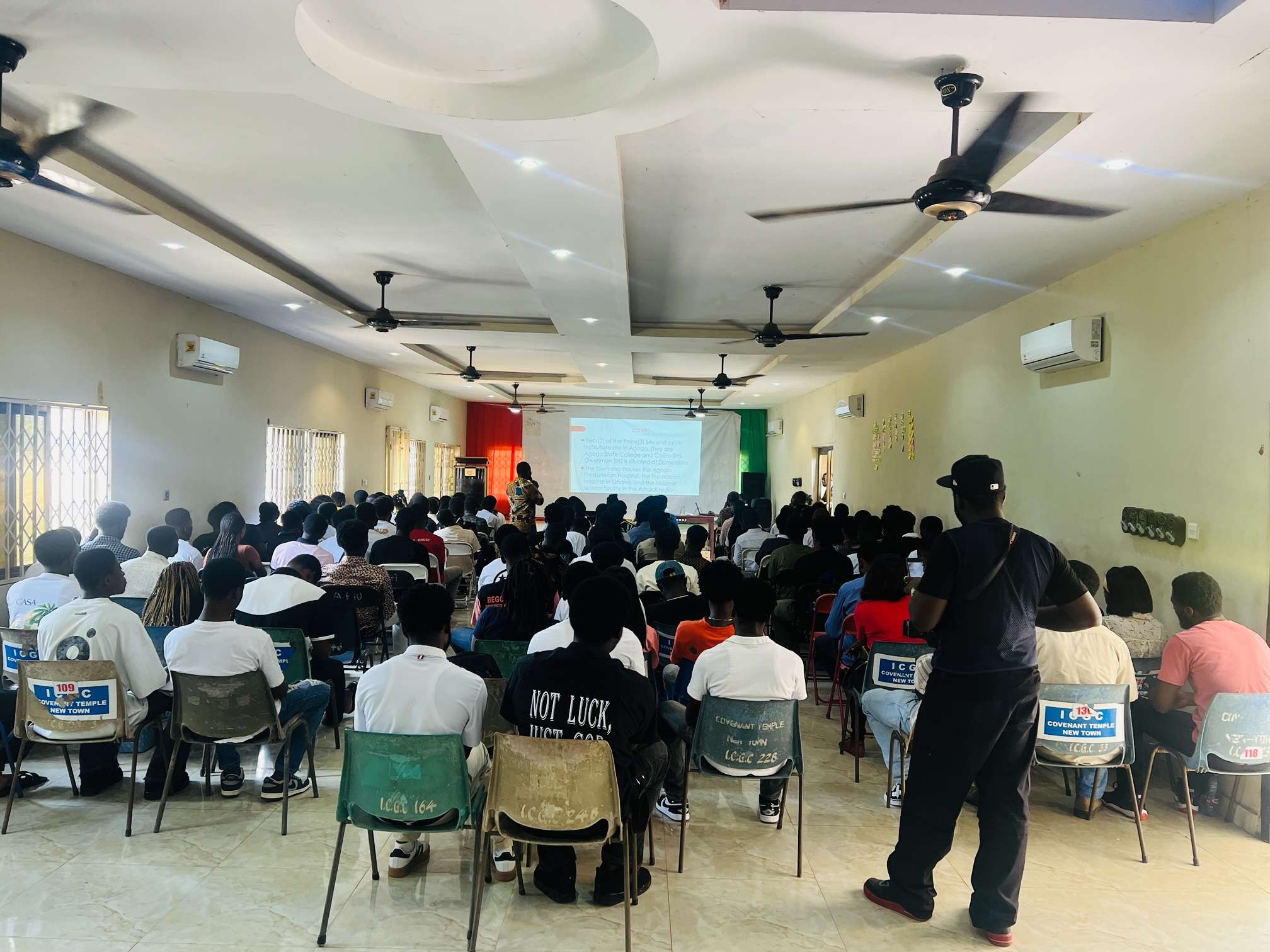21st July 2025.

Speech by cordinating Director
Mr Asamoah Damoah.
Education Director Present
MP present at the Occassion.
On Friday, 18th July 2025, the Department of Geography and Rural Development of the Kwame Nkrumah University of Science and Technology (KNUST), particularly students from the Decentralization and Development class, undertook an educational field trip to the Asante Akim North Municipal Assembly. The primary aim of the visit was to deepen their understanding of Ghana’s local government system by gaining firsthand knowledge of its structure, functions, composition, and developmental impact at the grassroots level.
The delegation consisted of 125 participants — 122 students, accompanied by two teaching assistants and one course lecturer.
Upon arrival at the Municipal Assembly premises, the group was warmly welcomed by the Municipal Chief Executive (MCE), who commended the department for prioritizing practical learning alongside classroom instruction. In a brief address, the MCE highlighted the importance of local governance in national development and encouraged the students to engage actively and ask critical questions throughout the visit.



The program featured a series of insightful presentations by senior staff of the Assembly. Key among the presenters were the Head of Human Resources, the Head of Administration, the Municipal Statistician, and representatives from various decentralized departments such as the Planning Unit, Environmental Health, and Social Welfare. These presentations covered a wide range of topics, including the composition of the Assembly, the decision-making process, interdepartmental collaboration, resource mobilization, citizen participation, and the challenges and achievements of the municipality in delivering public services.
Staff members were open and engaging, fostering an interactive environment where students were able to ask questions and participate in discussions. The Assembly officials also took time to share practical examples of local development initiatives, giving students a well-rounded perspective of governance at the municipal level.
In addition to the formal sessions at the Assembly, arrangements were made for the students to engage with the Asante Akim North Traditional Council. This interaction was designed to provide insight into the role of traditional authorities in the local governance framework. Discussions focused on the collaboration between traditional leaders and the Assembly, the contribution of chieftaincy to development, as well as the challenges faced by traditional institutions in the modern governance landscape.
The visit proved to be both informative and impactful, allowing students to connect academic theories with real-world governance practices. It also reinforced the critical role of local government institutions and traditional authorities in national development. The hospitality, openness, and professionalism displayed by the MCE and staff of the Assembly made the experience a memorable and enriching one for all participants.


